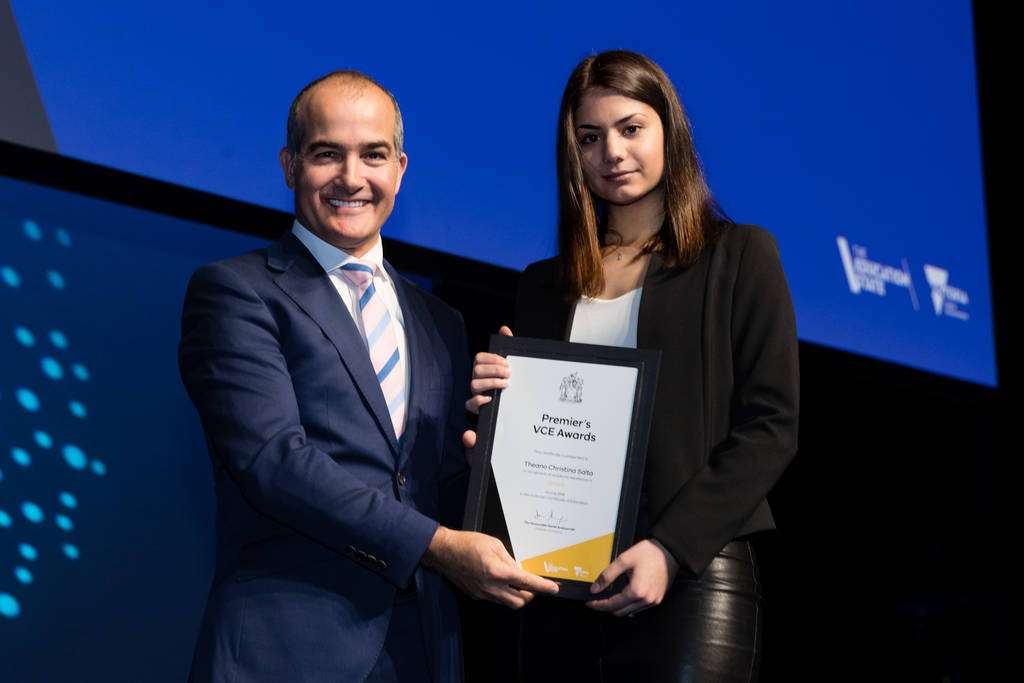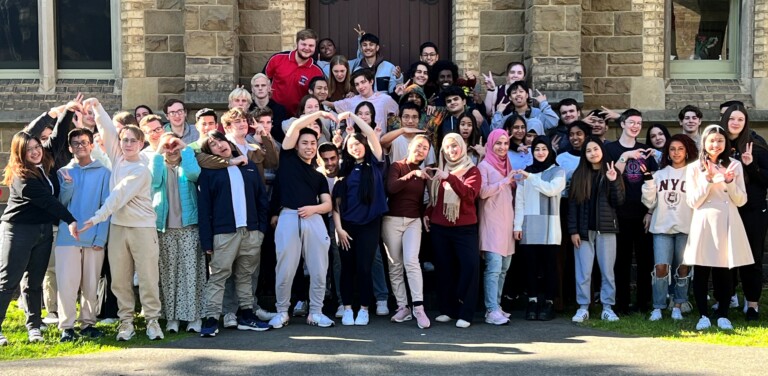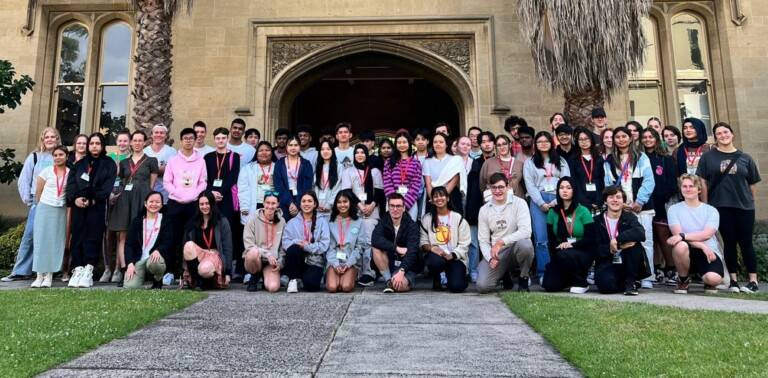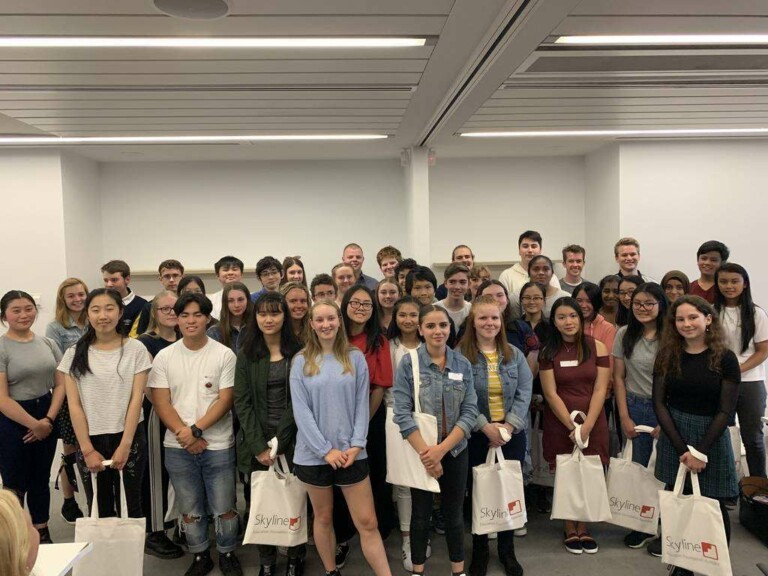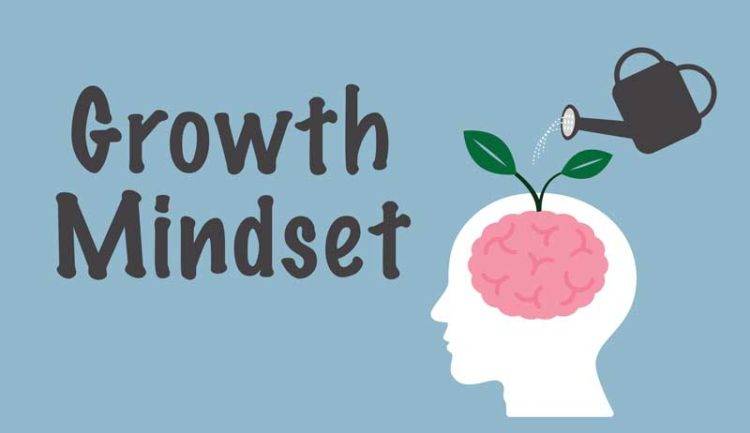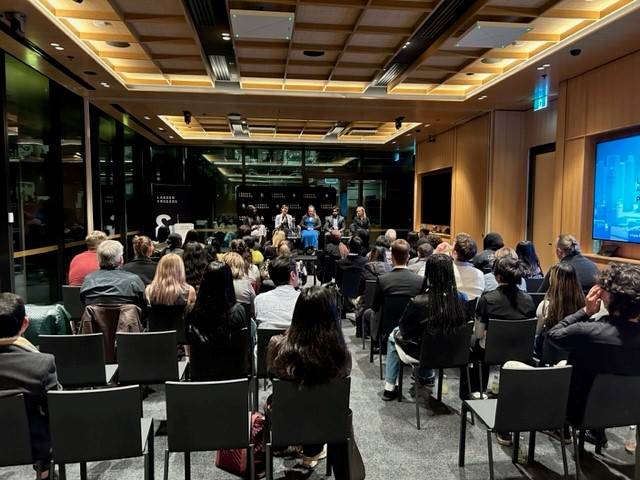De-stressing the ATAR
– Dr Elizabeth Hartnell-Young
Many Skyliners tell us they are worried about their chances of achieving a high ATAR (Australian Tertiary Admissions Rank), as the culmination of their schooling and for entry to courses. However the Victorian Certificate of Education (VCE) is not all about the score.
As last month’s article pointed out – Pathways and taking the long way round (skylinefoundation.org.au), – tertiary institutions accept a large number of students without an ATAR. And for personal wellbeing, there is no point in stressing in pursuit of those often too-well publicised numbers.
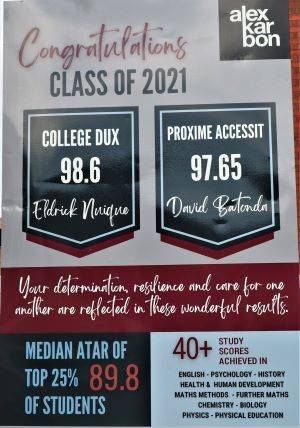
Although we are used to seeing billboards outside schools trumpeting students’ success, the ATAR ranking says nothing about their other learning capabilities, prior achievements, potential or application. No other educational jurisdiction uses such a ranking system, and in Australia, many universities are implementing alternative selection methods into their courses. While some first-year university students are still offered a place based on their ATAR, the rest are selected based on a range of pathways such as portfolios, academic history, aptitude tests, bridging courses, principals’ recommendations, interviews and being mature age. Students often value the broader evidence:
There’s a bit of a groundswell by young people actually saying we don’t want to be measured as a number any more. Young people from all sorts of backgrounds and all sorts of schools are wanting to have their full experience of learning assessed. What they do in a school day isn’t everything they have to bring to the community, or everything they will bring through to university (O’Connell in Black, 2021).
There is a growing recognition that ATAR is not the best tool – for students, institutions, or employers – but unfortunately the general public, and many prospective students, do not know of the alternatives (Black, 2021).
The Skyline VCE program runs for participants in Year 11 and 12, and aims to help students achieve personal goals. Skyliners achieve a wide range of ATAR scores, sometimes a little higher than they expected, sometimes not. Among the 2020 graduates, 78% of Skyline students reported that their ATAR exceeded their expectations, while others were disappointed. But great stories are emerging of students finding alternative pathways, with support from Skyline alumni and friends.
Parents can be influential too. In recent Australian research, parents’ indicated that their main point of reference was their own school experience and their understanding of ATAR was limited, but nevertheless they saw it as the primary goal for their children (O’Connell, Singhania, Hamdorf, & Cazaly, 2022). And while parents still had a primary influence on young people’s futures, many did not understand how alternative pathways into university or careers work, and could only provide a narrow range of advice.
Hot knowledge
Research shows that students value personal information – hot knowledge – the most. This includes talking to trusted peers, parents, or workmates or engaging in workplace activities. By contrast, cold knowledge, such as websites or more generic information sessions, or open days with limited opportunities for personal engagement, were perceived as less helpful (O’Connell et al., 2022).
A little-known fact is that students studying their VCE can opt not to do the exams and therefore gain their VCE without an ATAR. Templestowe College, a public school internationally recognised for innovation, promotes this as a valid option, so 20% of its students are enrolled to do the unscored VCE. The school has a partnership with Swinburne University that allows students to apply to any course without an ATAR. In a similar way, schools connected with Big Picture Education encourage project-based learning, with students building a portfolio of achievements to support their university entrance (O’Connell, Milligan, & Bentley, 2019).
Swinburne is just one of the universities that responded to COVID 19 by offering alternatives. In 2022 the Early Entry scheme runs alongside standard entry. The guaranteed ATARs still exist for specific courses and the standard prerequisites are as published. However, a select group of courses allow entry via a satisfactory Year 12, a recommendation from secondary school, completion of a questionnaire in the application form, and meeting the prerequisite of a score of 25 in English, or 30 in EAL, and any other usual prerequisites. Likewise, students from around Australia are using the Deakin Regional Access Scheme as a pathway to undergraduate study at its campuses in Geelong and Warrnambool. Students can secure a spot at university long before ATARs are released, based on their skills, experience and achievements. Recent school students can also apply.
South Australia is the first state to pilot learner profiles as an alternative to ATAR in 2022. Learner profiles are similar to portfolios, and are designed to help students present a wider range of evidence to universities, TAFE, industry and employers, because they form a more holistic view of a student’s capabilities. This is seen as an important equity measure.
Changes in Victorian senior schooling
Subject choice can have an effect on the ATAR, and this is where schools need to provide advice early in the secondary years. With changes from 2023 bringing the Victorian Certificate of Applied Learning (VCAL) and VCE together into an integrated senior secondary certificate, parents and students will have many questions to ask.
One immediate change involves the General Achievement Test (GAT), which in 2022 will be delayed until 7 September. The GAT is a way of triangulating Year 12 students’ achievement with their VCE results later in the year. It will provide specific information on each student’s key skills for life beyond school, but it does not directly count towards a student’s final VCE results.
The new standards will indicate whether students have demonstrated the literacy and numeracy skills typically expected of someone completing their secondary schooling: giving another indication of their readiness to move onto further education, training or employment.
Special consideration
Students in the Skyline program are likely to qualify for special consideration. If a student’s performance is affected by physical or mental-health issues for an extended time, university is still a possible pathway. Special consideration programs – such as the Educational Access Schemes in NSW or the Special Entry Access Scheme in Victoria – allow students with a low ATAR or even no ATAR to apply for a course that may have an ATAR requirement they don’t meet. These programs consider many things including financial hardship, excessive family responsibilities, refugee status or a difficult school environment.
If VCE was a total disaster, or wasn’t completed, another alternative for tertiary entry is the Special Tertiary Admissions Test (STAT), developed by the Australian Council of Educational Research. As a general rule, it is for those 18 years or over, and assessments are made on a case-by-case basis. Depending on the course or university, individual student circumstances might be sufficient to grant entry to one course but not another.
Skyline continues to support students who want to maximise their ATAR. But being involved in the 2 years of the program can only provide some icing on the cake, rather than adding a large number of points to the score. Every year there are more alternatives to the ATAR and being aware of other pathways to the destination is a must.
References
- Black, S. (2021). Alternatives to the Atar: ‘Most kids don’t know about them’. Retrieved from https://www.theguardian.com/australia-news/2021/jul/31/alternatives-to-the-atar-most-kids-dont-know-about-them
- O’Connell, M., Milligan, S., & Bentley, T. (2019). Beyond ATAR: A proposal for change. Retrieved from https://all-learning.org.au/app/uploads/2021/02/beyond_atar_proposal_for_change_all.pdf
- O’Connell, M., Singhania, A., Hamdorf, M., & Cazaly, C. (2022). Pathways or Goat Tracks: Non-ATAR University Entrance. Retrieved from https://www.ncsehe.edu.au/wp-content/uploads/2022/04/OConnell_RMIT_Final.pdf

